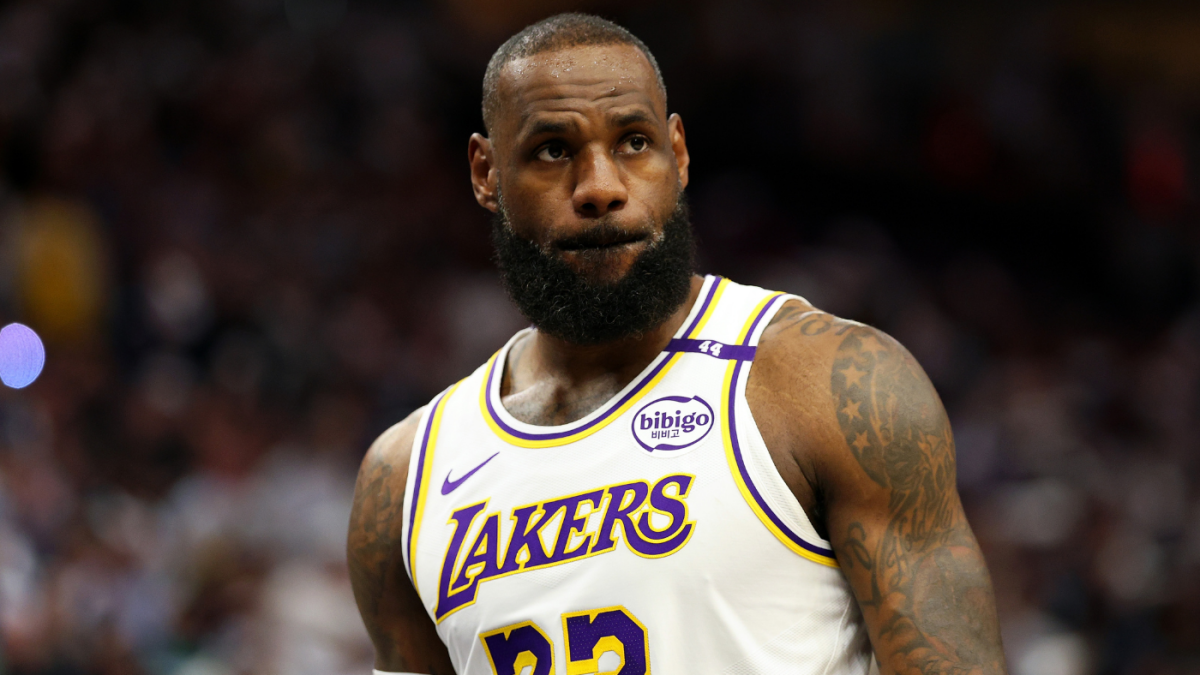LeBron James’ availability in the NBA often triggers major shifts, highlighted by the years leading up to his 2010 free agency when teams cleared salary cap space just for him. His moves have consistently led teams to championships, cementing his reputation as one of the greatest players in NBA history. However, despite his status, recent developments have not spurred a strong market for LeBron’s services. On Sunday, he opted to stay with the Lakers for the final year of his contract, though this decision seemed somewhat reluctant as his agent Rich Paul expressed LeBron’s desire to compete for a championship, which the Lakers are still trying to build towards.
The Lakers have appeared hesitant to fully commit to LeBron by not matching offers like Houston did for key free agents and have added some players without securing a strong supporting cast. With LeBron being nearly 40, time is running out for him to chase titles, and it’s becoming apparent that the Lakers may not be fully equipped or willing to maximize his remaining prime years. His no-trade clause gives him some control over his destination, but potential teams like Cleveland, New York, and Dallas face significant financial restrictions and hard salary caps preventing them from making competitive offers.
The new Collective Bargaining Agreement (CBA) has complicated trade scenarios by imposing stricter salary matching rules, which made what would have been reasonable trades for LeBron impossible under current regulations. Teams like the Knicks and Mavericks are hard-capped, limiting their ability to absorb LeBron’s large salary, while Cleveland would need to include a major player like Darius Garland to complete a trade legally. These financial and structural hurdles mean that many teams that might want LeBron are effectively priced out or blocked from making viable deals.
Trade rumors have surfaced, with some teams like Golden State and Los Angeles Clippers showing interest but facing challenges either in salary cap space or roster strategy. While some teams want to trade for LeBron and some teams he might want to join exist, finding a match that works both financially and competitively is proving difficult. This situation is made more complex by LeBron’s pursuit of a title in his twilight years, the Lakers’ shifting focus toward younger, athletic players, and the stiff competition in the Western Conference.
Currently, there’s no strong indication that either LeBron or the Lakers are aggressively pursuing a trade, largely due to the financial and strategic obstacles presented by the new NBA CBA. If LeBron was highly motivated to compete elsewhere, he would likely make financial concessions to facilitate a trade, but as it stands, the market for a superstar nearing 40 years old with a massive salary is limited.
Fan Take: This situation highlights how the NBA’s new financial rules profoundly impact team-building strategies and player movement, especially for aging superstars like LeBron James. For basketball fans, this means we may see fewer blockbuster trades in the near future, but it also raises important questions about balancing star power with team flexibility in the evolving NBA landscape.



